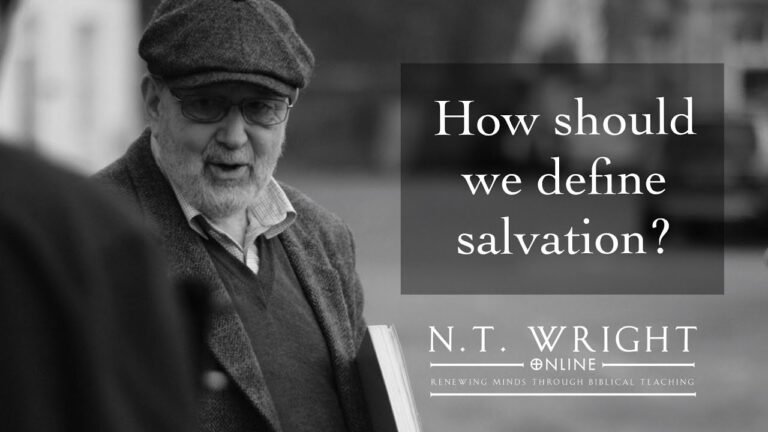The Significance of Biblical Bread in Scripture
Throughout history, biblical bread has served as a profound symbol of sustenance, community, and spiritual nourishment. From the manna that fell from the heavens to the loaves shared during the Last Supper, bread transcends mere food in the scriptures, embodying themes of faith and divine provision. As we explore the rich tapestry of biblical narratives, we uncover how this humble staple not only nourished the body but also fed the soul, drawing connections between ancient practices and modern interpretations. Join us on a journey to discover the significance of bread in biblical times and its enduring legacy in contemporary culture.
What type of bread was consumed in the Bible?
In biblical times, bread held significant cultural and religious importance, often serving as a staple in the diets of ancient communities. While the Scriptures do not explicitly detail the exact type of bread consumed, we can infer from historical and cultural contexts. The region’s agricultural practices and the dietary customs of the time suggest that bread was primarily made from simple ingredients.
During the Passover feast, unleavened bread was particularly symbolic, representing both the haste of the Exodus and the purity of the offering. This bread would likely have been a flat variety, akin to Lavash or Pita, made from a basic mixture of flour, water, and salt. The absence of leavening agents distinguished this bread, allowing it to be prepared quickly and without fermentation.
Cooking methods of the time would have included baking in an oven or on a hot surface, resulting in a versatile and easily transportable food. The simplicity of unleavened bread not only highlights its practicality but also its deep-rooted connection to faith, tradition, and community gatherings in biblical narratives.
What does the Bible refer to as the true bread?
In the Bible, Jesus is described as “the true bread from heaven,” symbolizing a divine sustenance that transcends mere physical nourishment. Unlike the manna that sustained the Israelites in the wilderness, the bread that Jesus offers is the essence of life itself, fulfilling deeper spiritual needs. This remarkable source of nourishment not only satisfies hunger but also grants eternal life, establishing a profound connection between the believer and the divine. By embodying “the real food,” Jesus invites all to partake in a transformative experience that nourishes both body and soul.
What does the Bible say about Ezekiel bread?
Ezekiel bread is a unique, nutritious option that draws its inspiration from biblical teachings. Crafted from a blend of sprouted grains such as wheat, barley, beans, lentils, millet, and spelt, this flourless bread is rooted in the verse Ezekiel 4:9. This ancient recipe not only honors its scriptural origins but also offers a wholesome alternative to traditional breads, providing a rich flavor and a dense texture that many find satisfying.
Beyond its historical significance, Ezekiel bread is celebrated for its health benefits. The sprouting process enhances the bioavailability of nutrients, making it easier for the body to absorb vitamins and minerals. As a result, this bread is not only a delicious choice but also a nourishing one, appealing to those seeking a balanced diet that aligns with both culinary preferences and nutritional needs.
Nourishment for the Soul: Exploring Bread’s Role in Faith
Throughout history, bread has been more than just a staple food; it serves as a profound symbol of sustenance and connection in various spiritual traditions. In many cultures, the act of breaking bread together represents unity, sharing, and the communal experience of faith. From the Eucharist in Christianity, where bread embodies the body of Christ, to the Jewish tradition of challah during Shabbat, each loaf carries deep meaning and invites reflection on nourishment that transcends the physical. As we explore these sacred rituals, we uncover how bread not only fills the stomach but also nourishes the soul, reminding us of our shared humanity and the divine grace that sustains us all.
Breaking Bread: The Spiritual Symbolism in Scripture
In the rich tapestry of scripture, breaking bread emerges as a profound symbol of communion, unity, and divine provision. This simple act transcends mere sustenance, embodying the essence of shared faith and fellowship among believers. From the Last Supper to the feeding of the multitudes, these moments illustrate how the act of sharing bread fosters connections, reflects God’s grace, and invites spiritual nourishment. Each broken piece signifies the breaking down of barriers, reminding us of our collective journey and the sacred bond we share in the pursuit of love and understanding. Through this sacred ritual, we not only honor tradition but also embrace the enduring message of hope and renewal that resonates through generations.
A Divine Feast: Understanding the Importance of Bread in the Bible
Throughout the Bible, bread emerges as a powerful symbol, representing sustenance, community, and the divine connection between God and humanity. From the manna that nourished the Israelites in the desert to the bread of the Last Supper, each reference underscores the essential role of bread in spiritual and physical life. It serves as a reminder of God’s provision and the importance of sharing, inviting believers to reflect on their own relationship with faith and with one another.
Bread also signifies the covenant between God and His people, woven throughout biblical narratives. In the Old Testament, the offering of bread is a key component of rituals and sacrifices, establishing a bond of trust and reciprocity. Jesus further deepens this symbolism, presenting Himself as the “Bread of Life,” inviting followers to partake in a transformative experience that transcends mere nourishment. This profound imagery encourages believers to seek spiritual fulfillment and community through shared meals and the act of breaking bread together.
In essence, bread is more than a staple food; it embodies a rich tapestry of meaning within the biblical context. It fosters a sense of belonging and highlights the beauty of divine grace woven into everyday life. By understanding the significance of bread in scripture, one can appreciate the depth of its symbolism and its role in nurturing both body and spirit, ultimately leading to a more profound connection with faith and fellowship.
Biblical bread transcends mere sustenance; it symbolizes faith, community, and the enduring human spirit. From the simple unleavened loaves of the Exodus to the rich traditions surrounding the Eucharist, bread has woven itself into the fabric of spiritual life and cultural heritage. By embracing the lessons and stories tied to this sacred food, we not only nourish our bodies but also enrich our souls, reminding us of the deeper connections that bind us together through shared rituals and beliefs.







